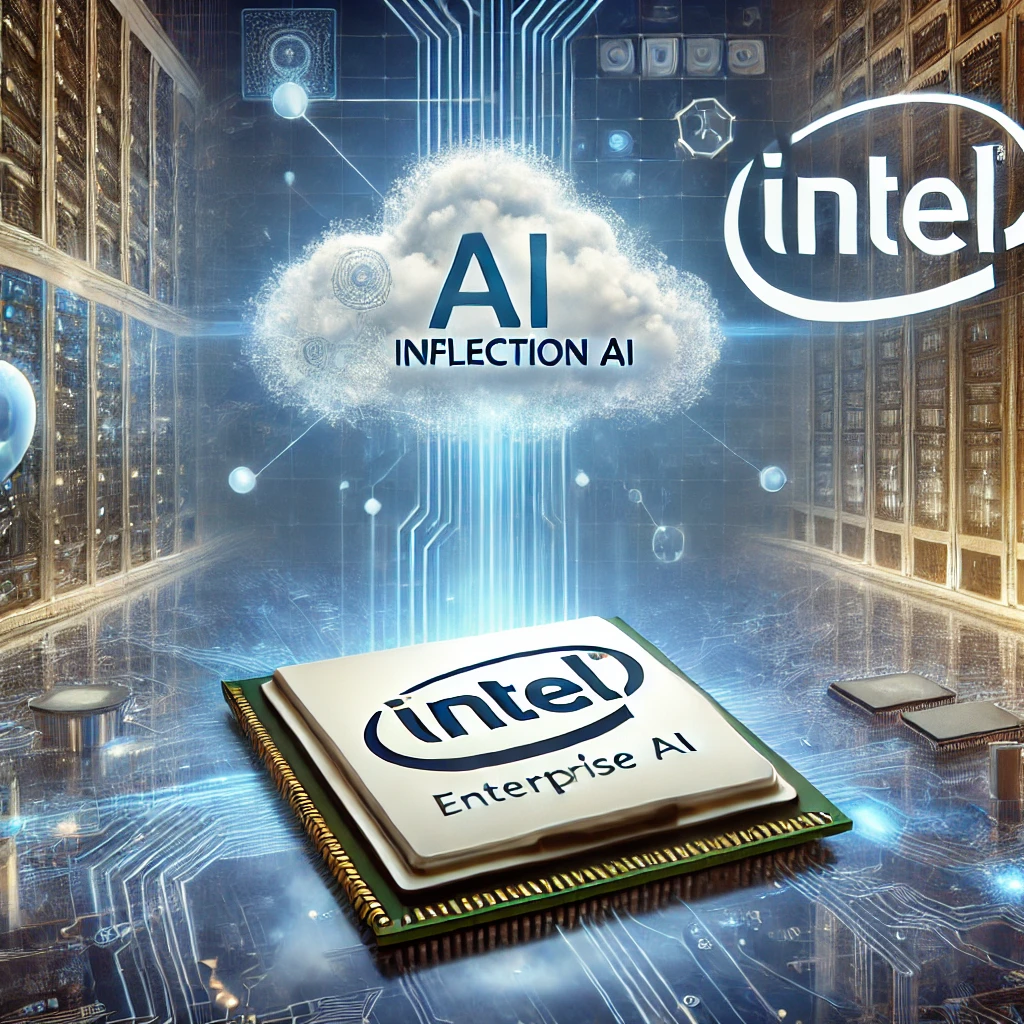Intel is making waves in the AI industry with the debut of its new AI cloud platform powered by Gaudi 3 chips, alongside a significant partnership with Inflection AI. The collaboration is set to deliver cutting-edge AI capabilities to enterprises, with the launch of Intel’s Tiber AI Cloud. The tech giant is also planning to release the solution as a server appliance next year, positioning itself to compete more aggressively in the fast-growing AI market.
Gaudi 3: Intel’s Latest AI Accelerator
At the heart of Intel’s new AI cloud platform is the Gaudi 3 chip, the latest in its line of purpose-built AI accelerators. Gaudi 3 is designed to enhance deep learning and high-performance computing (HPC) workloads, enabling faster training times for AI models while consuming less power compared to traditional GPU-based systems. Intel has been positioning the Gaudi chips as alternatives to the dominant AI chips produced by Nvidia, and the release of Gaudi 3 represents a key milestone in that strategy.
The Gaudi 3 chips are designed to handle increasingly complex AI workloads, including natural language processing, image recognition, and autonomous decision-making systems. Their integration into Intel’s AI cloud platform offers enterprises the ability to scale their AI projects more efficiently, with Intel claiming significant cost and performance advantages over rival solutions.
Partnership with Inflection AI
Intel’s partnership with Inflection AI, a prominent AI research and development company, adds a crucial layer to the new cloud offering. Inflection AI is focused on developing advanced AI models and has been working on innovative natural language understanding tools, making it a valuable collaborator for Intel’s enterprise-focused AI cloud.
Together, Intel and Inflection AI are launching a new enterprise AI solution that is optimized for performance on Intel’s Gaudi 3-powered Tiber AI Cloud. This solution is aimed at businesses looking to deploy scalable AI systems that can handle large datasets and perform sophisticated tasks such as real-time analytics, predictive modeling, and AI-driven automation.
Intel’s cloud platform will offer businesses the ability to run AI workloads without needing to build their own on-premise infrastructure, reducing both complexity and costs. By partnering with Inflection AI, Intel is enhancing its platform with state-of-the-art AI models that are pre-optimized for the Gaudi 3 architecture, ensuring that customers get the most out of the new chips.
Tiber AI Cloud: A New Player in the AI Cloud Market
Intel’s Tiber AI Cloud is the company’s latest foray into the cloud computing space, specifically designed to support AI-driven applications and services. The cloud platform leverages Intel’s hardware innovations, including its Xeon processors and Gaudi AI accelerators, to deliver high-performance AI capabilities to businesses of all sizes.
The Tiber AI Cloud will enable enterprises to train large-scale AI models, run inference workloads, and deploy AI-powered applications quickly and efficiently. Intel is positioning the platform as a cost-effective alternative to existing AI cloud offerings from competitors like Google Cloud, Microsoft Azure, and Amazon Web Services, which dominate the AI cloud market.
Intel’s focus on optimizing the platform for AI workloads—from natural language processing to image analysis—could help it carve out a niche in the growing AI cloud sector. As more enterprises adopt AI-driven solutions, the demand for specialized infrastructure that can handle the computational intensity of these applications is expected to surge.
Future Plans: AI Server Appliance
In addition to its cloud offering, Intel announced that it plans to release the AI solution as a server appliance next year. This appliance will allow companies to deploy Intel’s AI capabilities directly within their own data centers, offering greater flexibility for businesses that require on-premise solutions for data security, compliance, or performance reasons.
The server appliance, powered by Gaudi 3 chips, will enable enterprises to perform AI model training, inference, and real-time data processing on-site, while still benefiting from the performance and cost advantages of Intel’s AI hardware. The appliance will be especially attractive to industries with stringent data privacy requirements, such as healthcare, finance, and government sectors, where maintaining full control over data is critical.
The Competitive Landscape
Intel’s entry into the AI cloud market with Gaudi 3 chips and its collaboration with Inflection AI is a strategic move aimed at challenging established players like Nvidia and Google in the AI hardware and cloud space. While Intel has been a dominant player in the broader semiconductor industry, it faces tough competition in the specialized AI chip market, where Nvidia’s GPUs have long been considered the gold standard for AI workloads.
However, Intel’s focus on delivering a more cost-effective, power-efficient solution with Gaudi 3, combined with its comprehensive Tiber AI Cloud offering, could give it a competitive edge, especially among enterprises looking for scalable AI solutions that are optimized for specific workloads.
Conclusion
Intel’s new AI cloud platform, powered by Gaudi 3 chips, marks a significant step forward in the company’s efforts to establish itself as a leader in AI hardware and cloud services. By partnering with Inflection AI and offering both a cloud-based solution and a server appliance, Intel is positioning itself to meet the growing demand for enterprise AI capabilities. As the competition in the AI cloud market heats up, Intel’s focus on performance, cost-efficiency, and scalability will be key factors in its success.


